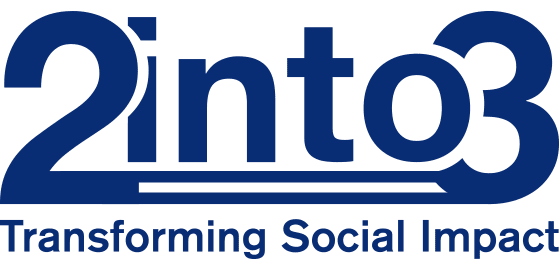Attracting Talent in the Social Economy: Impact of the Second National Social Enterprise Policy
As we anticipate the forthcoming publication of the Second National Social Enterprise Policy, we’ve considered the impact it may have on attracting talent into the social economy, and what challenges may lie ahead for recruiting and retaining talent in the current market.
Attracting the Next Generation of Changemakers
Attracting fresh talent into the social economy is an ongoing issue, even more-so given the current labour market. The new policy’s first objective offers a potential solution to this problem. The focus on awareness building and defined communications is an important first step in informing young people about the positive impact social enterprises have on their local communities. We need to leverage the consideration for sustainability and social responsibility shown by the new generation of Gen Z workers and attract these future leaders into the social economy.
There’s immense potential to integrate awareness of social enterprises into the education system, particularly during transition year or at university, thereby introducing students to the sector early on. Research shows that fewer younger people are engaged in social enterprises than other cohorts. Therefore, we can do more to attract innovative, creative and passionate individuals into our sector through work placements or graduate programmes, offering a pathway into the sector for future leaders.
Growing Social Enterprises
Currently, many social enterprises encounter obstacles when accessing business supports, hindering their commercial viability and scalability. We hope to see increased engagement from LEOs and Enterprise Ireland, as until social enterprises have access the same business supports and financing as private enterprises, their sustainability will continue to be in question.
Whilst the financial health of social enterprises clearly impacts the resources available for attracting talent or building out a team; we also need to see investment in skills-building and training tailored to the social economy. This is particularly apparent in business planning, governance, finance, risk management, and human resources management. Learning and development opportunities are not only a key indicator of staff attraction and retention, but also ensures adherence to best practice and fosters organisational growth and impact.
Data Collection and Social Impact Measurement
Social impact measurement is a key aspect of how organisations demonstrate accountability and transparency. However, given the long-term and inherently qualitative nature of many social outcomes, it can be hard to measure. We hope to see standardised tools and mechanisms for data collection developed to support organisations in carrying this out, with the input of sectoral stakeholders. It is crucial for the sector to take the lead in determining measurement metrics, rather than deferring to what funders or government departments may want to see.
Nevertheless, these initiatives will be resource intensive and social enterprises will need to be prepared, particularly in terms of recognising potential skills gaps in their teams and assessing whether they have the capacity to carry out the research and analysis in-house.
We may see increased demand in hiring for certain skillsets, such as data collection, research methods and analytics. Outside consultants can offer the answer in some cases, yet the availability of accredited services remains limited.
In conclusion, whilst the Second National Social Enterprise Policy presents promising opportunities for attracting talent into the social economy, addressing the associated challenges demands concerted efforts from both policymakers and stakeholders from across the nonprofit sector. Through fostering an innovative, collaborative and growth-oriented environment, we can attract the best talent; ensuring the social economy can realise its full potential in driving positive societal change.
Written by Orla Dolan, Recruitment Co-ordinator, 2into3.
Get in Touch
Do you require assistance with recruitment and retention in your organisation? Find out more about our talent management services here, or contact our Director of Talent Management, Fergal O’Sullivan at fergal.osullivan@2into3.com.


